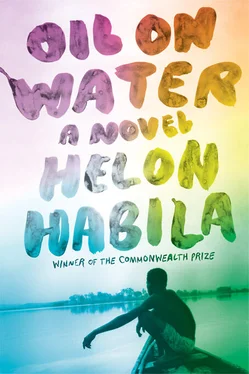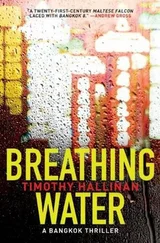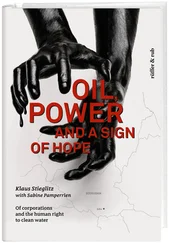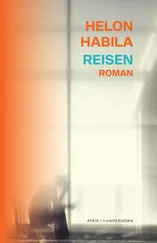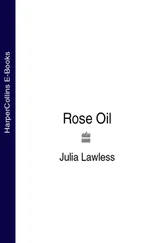— Come inside.
He stepped aside and waved us forward, smiling. The hut was surprisingly roomy, and would easily accommodate all six of us. It was bare of furniture except for mats strewn over the mud floor. We took off our shoes and sat, gladly, on the hard floor, our backs against the curving wall.
— This will be your quarters for the night. We apologize for any discomfort, but this is all we can provide at such short notice.
And before we could ask him any more questions he left us, stepping out into the night as soon as he uttered his last word. We left the door and the single window open to trap whatever passing breeze we could, but despite the stifling heat in the room, Zaq, seated next to me, was shaking violently, his arms wrapped around him, trying to keep warm. He was lying on his side, his head almost touching the floor. I hoped he’d simply fall asleep and wake up tomorrow when it was time to go. I felt as if I were being made solely responsible for him, and I wanted to say to the others, Don’t you know who Zaq is? Surely they knew about him, especially the Lagos reporters. After all, he had once been one of them. But these haughty faces looked young, ignorant — one looked even younger than me — and I saw how their puzzled eyes traveled around the room, landing on face after face, trying to gauge if we were in real trouble, or if this was a brief discomfort that would disappear with the coming of day. No, they’d be too young to know Zaq.
Zaq’s Lagos days ended almost five years ago, and in this business that was a whole generation. A generation of papers, his generation, had died out, its place taken by another generation, my generation. Broader, glossier, racier, cockier.
Not long after the priest had gone, a woman came in carrying a large bowl of water and placed it by the door. Then smilingly she invited us to wash our hands, and as we washed, two more smiling matrons came in, one with a bowl filled with steaming bean porridge, the other with a tray bearing chunks of lumpy home-baked bread. Not a three-course gourmet meal, but at this moment it tasted like the best meal I’d ever had. The priest, Naman, did not return; only the women did, to remove the dishes. We drank water from a plastic pitcher and before long we were all drowsy. Some of us were already sprawled out and snoring, having arranged our limbs around each other’s as best we could. All night I kept an eye on Zaq, who had a rough time of it, burning with fever and sweating till early morning, when his temperature dropped and he fell asleep.
I WAS THE FIRST to wake up, or maybe I hadn’t slept at all, and when I opened my eyes it was dark in the room, and outside I could hear the faraway call of roosters accompanied by insects ushering in the day. It was six a.m. It’d be at least another hour before the others woke up. I carefully made my way past the sprawled-out, intertwined limbs and emerged outside to sea air and birdsong. Nostalgia settled on my shoulders like the arm of a long-lost friend, urging me to look back and listen; it had been years since I’d heard such morning sounds, such silence. I walked for a while in the sculpture garden, studying the decaying clay figures, then I climbed a hillock overlooking the water and stared at its rippling, glittering surface. I saw a flock of morning birds emerge from a leafy cove on the opposite bank, and then I returned to the hut. All the men were outside already, except for Zaq, who was lying on his back on the mud floor, his eyes fixed to the concave thatch roof. When I stood over him I saw his forehead covered in sweat, his lips parched and bleeding. He tried a smile, but couldn’t make it.
I helped him outside and sat him on a log under a acacia tree. A man in a long white robe came and told us a pickup truck would be here any minute to take us to the pier, where we’d get the ferry back to Port Harcourt. Some of the men stood under the leafy gardenias and acacias that grew all over the yard; some walked in the sculpture garden taking pictures of the statues, asking the tall priest questions. In the daylight the still figures didn’t look as menacing as they had the night before. All their faces were carefully aligned to face east or west. The ones facing east had a happy, ecstatic, worshipful expression, their clumpy, broken-fingered hands open, raised as though to receive the morning sun, while the figures facing west had their heads bowed, their lips turned down. There was a contorted and tortuous quality to the figures that made them appear grotesquely lifelike, elemental, like seedlings that had just now sprouted from the earth, still learning how to stand straight. There were dozens of them, some old and decaying, some looking newer.
— We believe the sun rising brings a renewal. All of creation is born anew with the new day. Whatever goes wrong in the night has a chance for redemption after a cycle.
— Who made the figures?
— The worshippers, that’s what we call ourselves. Some of these figures go back almost a hundred years to the founding of the shrine. The sculpture garden is the shrine to which this whole island is dedicated.
The priest stood a little detached from the journalists, maintaining his smile, his hands clasped behind him; the blanket from yesterday was gone and in its place was a white cotton robe that shook and sparkled in the morning breeze. He turned when he heard the truck approaching.
— Ah, here’s your transportation to the ferry.
I turned to Zaq, who was seated with his back against the tree; his head was bowed, and his eyes when he raised them looked dull.
— The truck is here, Zaq.
— I can see that.
— Time to go.
— I can’t stand up.
— I’ll help you, come on. Take my hand.
— I think I’ll stay here.
— What? But you can’t stay here.
I looked around, trying to involve the others in our exchange, but most of them were scrambling for the truck.
— We have to get you to a doctor.
— I’ll stay another day, if they’ll have me.
— Well. . that is no problem.
The urbane priest was just behind me, a smile on his infinitely kind face.
— Are you sure? He needs a doctor.
— We have a nurse here and she will attend to you. But perhaps you won’t need her. The air alone will heal you. I have seen it happen. But I must warn you that it will be several days before the ferry is back this way.
— I don’t mind.
— Listen, Zaq. . are you sure?
He slumped, all the effort leaving his shoulders.
— Will you take a message for me, Rufus? It’s for my editor, Beke Johnson. Here’s his card. Call him and tell him I’ll be back in a few days.
I took the card. For the first time since our arrival at the destroyed militant camp, he had a smile on his face. He motioned for me to come closer, and when I leaned forward I could smell stale drink on his breath and see clearly into his watery and red and yellow eyes.
— I like the air here. It’s pure. Who knows, I might even get some sort of religion.
I nodded, unsure if he was serious or joking. The truck honked twice and the journalists waved impatiently for me to hurry up.
— Have a safe trip.
The priest walked me to the truck.
— Your friend will be fine with us. Don’t worry.
I gave him my office number, and Zaq’s editor’s number, just in case Zaq became seriously ill.
— But we don’t have phones here.
— Just keep it. In case of emergency.
As the truck bumped its way through the dew-soaked morning vegetation toward the pier at the other end of the island, my mind kept returning to Zaq. I had an image of him in that hut, alone, sweating, pining for a drink, haunted by whatever memories were pursuing him. As we got to the village center the landscape changed: the huts disappeared, and gray brick houses with rusty zinc roofs lined the single dirt road. The houses were grouped into compounds by walls of mud and straw, and behind every compound was a little field of vegetables and cassava, their climbers circling over one another, aspiring upward, using slender sticks stuck into the earth as crutches. Children came out, wiping the sleep from their eyes, and women with long-handled brooms cleaned the house fronts. Here, time seemed suspended and inconsequential, and for a moment I felt Zaq had chosen the better option by remaining and not hurrying to return to Port Harcourt.
Читать дальше
